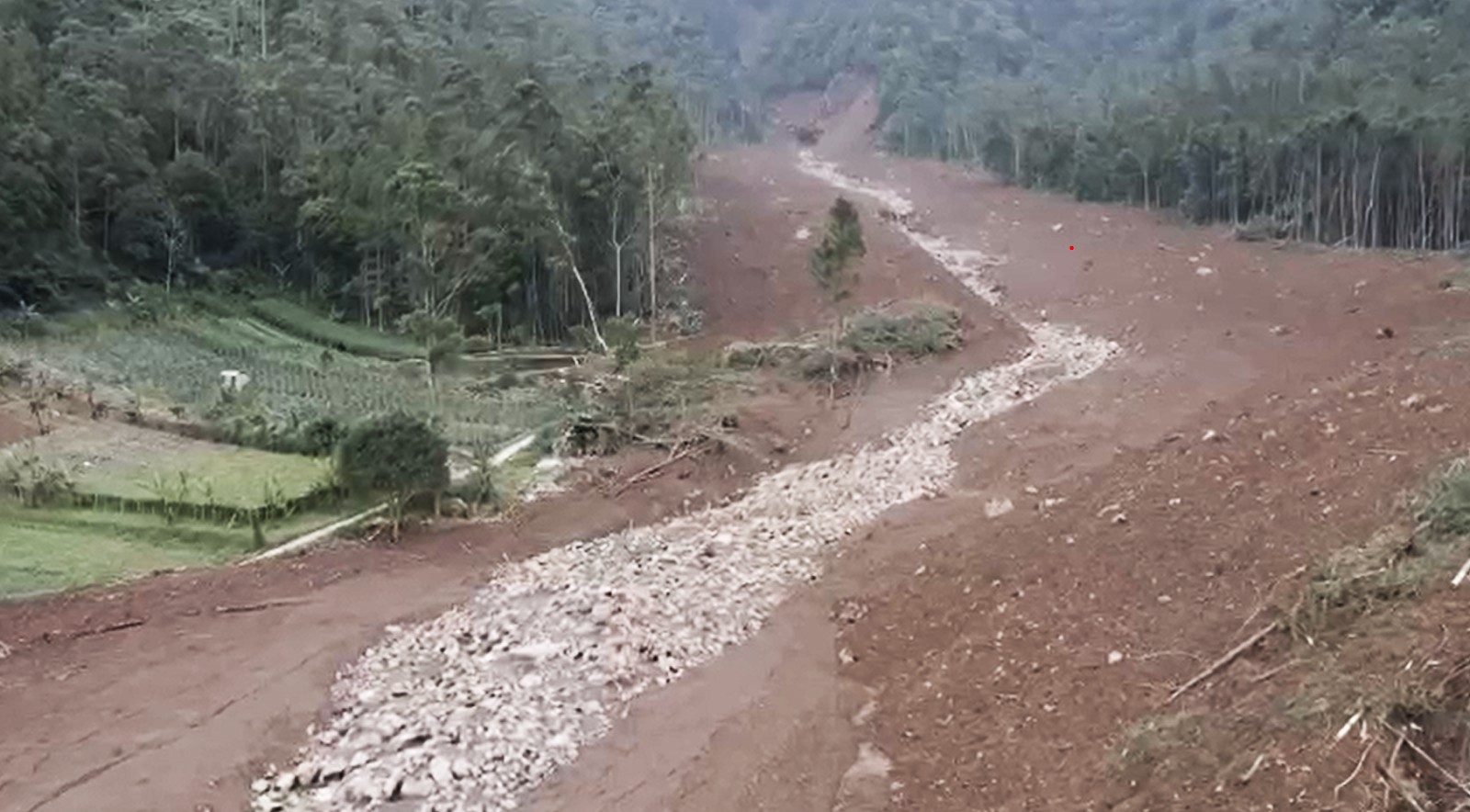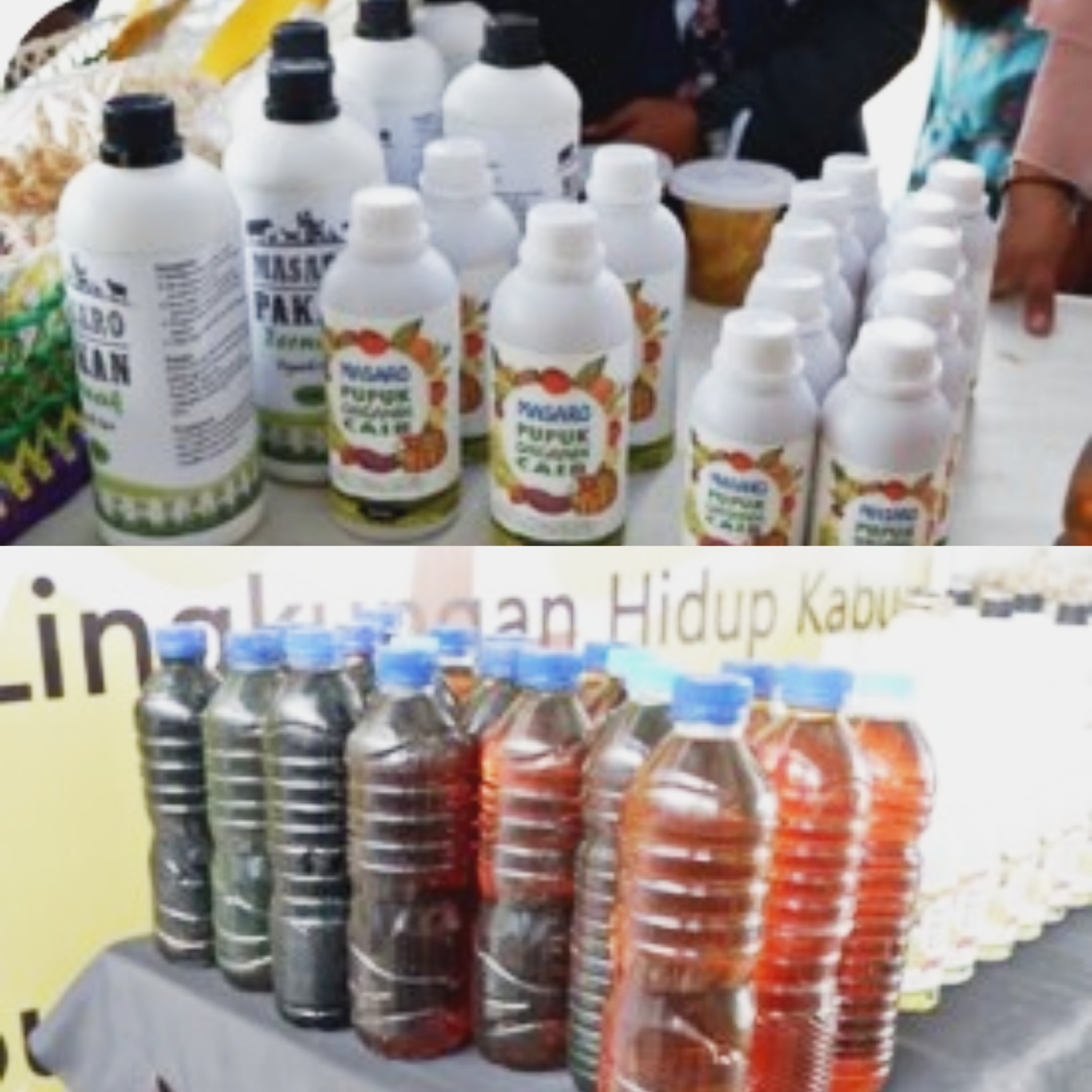Organic Waste Management with Masaro ITB Method
By Adi Permana
Editor Adi Permana

*Organic and inorganic waste separation at ITB (Photo by Adi/Communication and Public Relations Bureau)
BANDUNG, itb.ac.id — Organic waste makes up the majority of waste components, accounting for 50-70 percent of overall waste. The society's lifestyle, which has not incorporated waste separation by kind, causes organic waste to mix with other forms of waste, resulting in a foul odor and health issues due to pathogenic bacteria produced during the decaying process. With this reference, Ir. Akhmad Zainal Abidin, M.Sc., Ph.D. (Chemical Engineering Product Design and Development Research Group Lecturer) and his team created Masaro technology (Zero waste management).
Masaro technology is a waste management training program that aims to achieve zero waste by shifting the waste paradigm from cost center (collect - transport - waste) to profit center (sort - transport - process - sell). "Waste may be repurposed to create high-value products. Waste that is mixed up is a liability, but garbage that is separated is a benefit," he said.
Masaro Technology is based on five principles starting from sorting waste at the source; processing waste near the source; involving the community, government, and industry; using environmentally friendly technology; and developing management for sustainability programs. Masaro technology separates community waste into five categories, namely decaying waste, plastic film waste, waste-to-energy (WTE) waste, recyclable waste, and B2 waste (hazardous materials). To produce value-added products, each form of waste is processed according to its own processes.

*Photo: Waste separation based on Masaro Technology
Masaro's technology is primarily focused on organic waste. Akhmad Zainal and his team created the LBHP program to involve the society, government, and industry in the management of organic waste at home. Masaro’s LBHP (Clean Green and Productive Environment) is a program for turning household organic waste into a 4:3:2:1 planting medium. According to that specified formulation, the planting medium includes not only organic waste, but also soil, organic waste, animal manure, and rice husk charcoal. The LBHP program is implemented by placing organic waste at the bottom of the polybag, followed by a mixture of three other growing media on top, and finally water it with Masaro's POCI (Special Liquid Organic Fertilizer), another Masaro Technology product.
This report on LBHP Masaro's organic waste management was released in Media Indonesia's ITB Engineering Rubric on Tuesday, April 20, 2021. [Download here]
Organic waste management with LBHP Masaro has enabled villages and urban communities to use up their organic waste. Nonetheless, in order to raise social awareness, the LBHP program must begin with socialization and good education, including technical guidance, tracking, and assessment. According to the Masaro ITB team, Masaro Technology offers the best option for organic waste management and recycling, with a method that is much safer, simpler, and cheaper for all to use and has a great benefit value.
Writer: Diah Rachmawati (Industrial Engineering, 2016)
Source: Masaro ITB Team
Translator: Sekar Dianwidi Bisowarno (Bioengineering, 2019)


.jpg)
.jpg)
.jpg)


.jpg)
